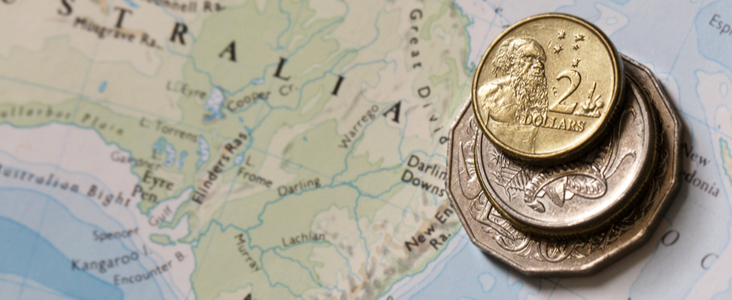
Australia’s economic sovereignty hit the common vernacular in April 2020 this year.
The Australian PM, Scott Morrison, stated that “protecting our sovereignty has always come at great cost, regardless of the form the threat takes.” At the time there was a notional call to arms to buy Australian made products, to reignite manufacturing onshore. As the effects of COVID-19 locked us down, the call to Make Australia Make Again diminished as economic survival was the end goal.
2020 – Another Hurdle to Jump
As we hurtle towards the end of this wretched year, Australian exporters are facing the most unfortunate, yet incredibly predictable, backlash from China. The Australian Government dared to call China out regarding the origins of COVID-19 (with resounding support from 137 nations).
China’s bully-boy approach is to play political havoc, causing untold stress and anguish on exporters.
The trade games began via unreasonable tariffs and other skullduggery. Tariffs on Australian beef up from 4.8% to 12%, timber exports to China has been put under intense scrutiny, barley (80.5% tariff imposed), $20m worth of lobsters left stranded to die on Shanghai Pudong airport tarmac in early November 2020 and the latest is a 212% tariff on Australian wine. Not to forget that Australian coal has also been put on the ‘do not buy’ list from Beijing.
These are long term established relationships which the Chinese have treated with disdain. It is incredibly hard to establish trade with China in the first place. The hoops to jump through and the politicking at every level. Only for all that hard work to be swept aside. The reasons are none other than a dislike for being questioned about what happened in Wuhan in December 2019.
Not much of a way to do business is it?
There has to be a better way to make money than relying on the rich-kid with all the lollies, to dish them out when they feel like it.
We wrote about the need for choosing our trade partners earlier this year. The need to look beyond economics and to look at our existing allies in national security.
We make long-term local economic decisions based on assumptions about international trade. Therefore, as with defence, we need to be able to trust our trading partners.
The thought is to develop a manufacturing and supply-chain alliance. And it is becoming ever more important day by day given the current mentality of Beijing.
The Chinese Government’s trade gamesmanship has not gone unnoticed. The world has come to our support. It looks like wine unites the world with a social media push to buy an Australian bottle of wine. There is a sense of global solidarity behind this campaign. May the global village realise that one nation’s fat cheque book does not make the planet a better place.
If we consider economic sovereignty to be important, then Australians ought to look local for produce and products. To look after our own.
We need to boost our manufacturing. Consumers need to be prepared for paying a bit extra in the short-term for massive long-term economic gains and reliability.
If there is ever a need to buy from the bush, now is the time. Boycotting China for Christmas may come from Pauline Hanson but she has a perfectly valid point. Australia, we have let the balance of economic power slide for far too long.
Our reliance on trade partners who do not share our values has been exposed as a real vulnerability. Guard rails need to be set up in terms of trust.
Where do we start?
There needs to start a bias towards buying Australian grown and Australian made products.
It can start in the supermarket. Choosing one or two products over an imported product is within everyone’s capacity. There needs to be a preference for Australian products in consumers shopping trolleys.
As businesses, we need to start questioning our suppliers. Ask why can’t that be grown or manufactured here? Can a partnership be developed that will enable this? Are there pivots that will facilitate a product development and manufacture onshore instead of offshore?
We need to get acting like a clever country, now. November 2020 has seen an escalation in tariffs and trade bans by China.
Reiterating what PM Scott Morrison stated in April 2020 – he said that economic sovereignty was the need to have profitable, competitive, diverse and successful industries in Australia. A stronger policy environment to support the Australian agricultural and manufacturing sectors and diversification of trade partners must be at the forefront of Australian Government policy. If not, it 100% needs to be.
Economic sustainability begins by encouraging Australians to buy Australian grown and Australian made products and developing ways to manufacture products in this country. The next act is to forgo a reliance on others. Particularly unscrupulous trade partners. We need to develop alliances with countries that have similar values and treat trade agreements with the level of respect they deserve.



